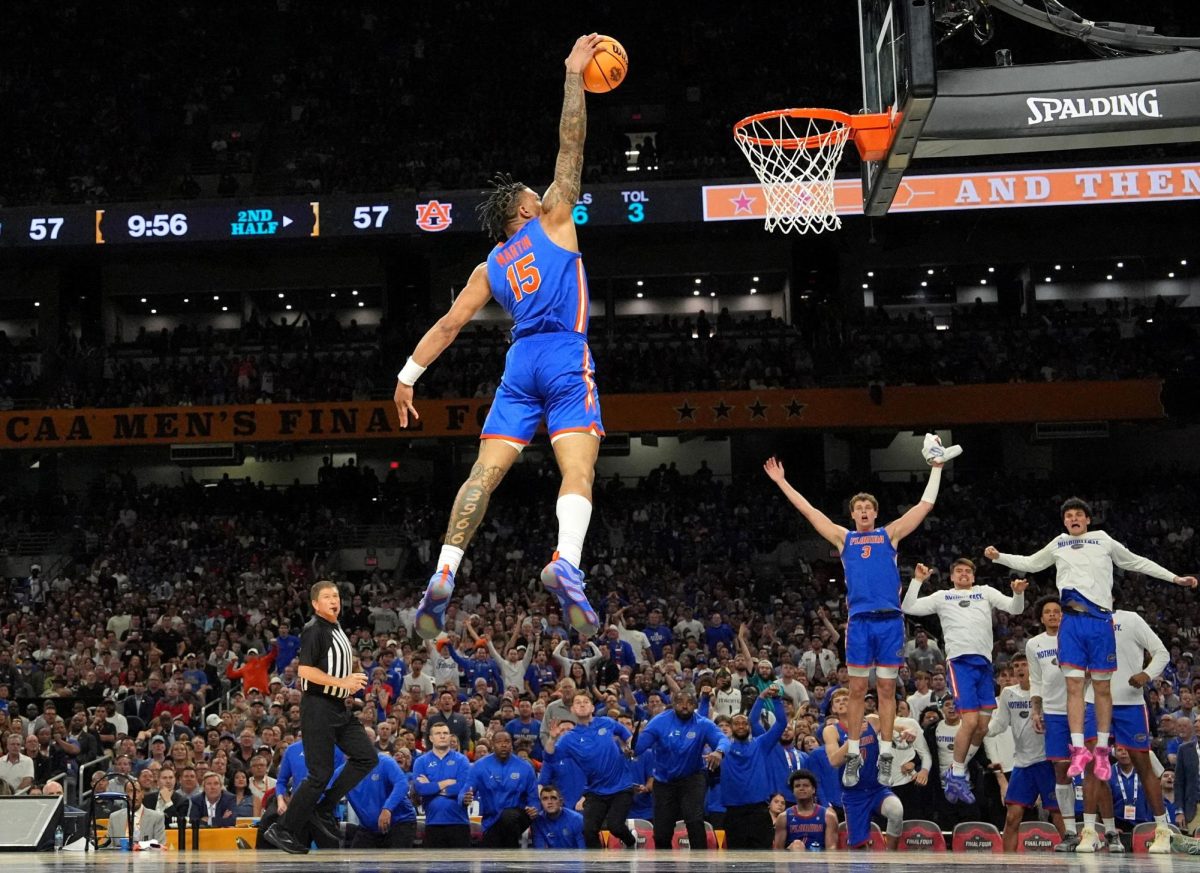As the March Madness approaches, the hunt for a Cinderella story intensifies, pushing the excitement of college basketball to its peak. But while students obsess over at-large bids and bracket busters, teachers have a different game plan: to prevent students from watching the action-packed “Big Dance” during class.
With games tipping off during school hours, students and teachers face the overwhelming distractions that March Madness brings. With internet-enabled Chromebooks and Phones, students can be tempted to watch the action during the school day. Some teachers crack down on strict phone policies to keep students from watching games and reading sports articles. Still, others try to embrace the madness, using tournament-style activities to keep students engaged. Either way, keeping students from sneaking a peek at a last-second upset is no easy task.
“I can see [March Madness] becoming a distraction. We need to monitor Chromebook usage and phone use,” English teacher Claire Lipsitz said.
The NCAA tournament, which began after Selection Sunday on March 16, has already sparked controversy with team selections into the tournament. Students, however, remain intrigued by the unfolding drama on the court. Many follow the action by completing March Madness brackets, trying to predict tournament upsets and ultimately, the winning team.
“Everyone talks about it, including teachers. It becomes very distracting in school for many kids,” junior Mike Tedla said. “You want to know how your bracket is doing and if there are any crazy games. Overall, it’s very distracting to students’ learning.”
Teachers have noticed the distraction extending beyond the NCAA Tournament.
“Even last week with the conference tournaments, kids were trying to watch games during class,” Math teacher and boys’ basketball coach Kevin Parrish said. “It’s not even just basketball. When the World Cup was on, there were kids trying to watch that during class.”
For teachers, the tournament amplifies an ongoing challenge in the classroom.
“It is just another thing that distracts kids,” Parrish said. “They are already distracted by their phones, their peers. Especially for the kids that love sports, they love filling out the brackets and talking about everything, which makes it just another thing that distracts kids from paying attention in class.”
While students gather in the excitement of buzzer-beaters and bracket-busters, teachers remain focused on teaching their curriculum.
“We are at school to learn,” Lipsitz said. “We need to try to get the kids to focus on learning and classwork.”
As the tournament progresses and the stakes rise, the constant battle between education and entertainment continues throughout WJ classrooms. Whether through stricter rules or creative engagement, teachers are determined to keep the madness of March from overtaking their lesson plans.









